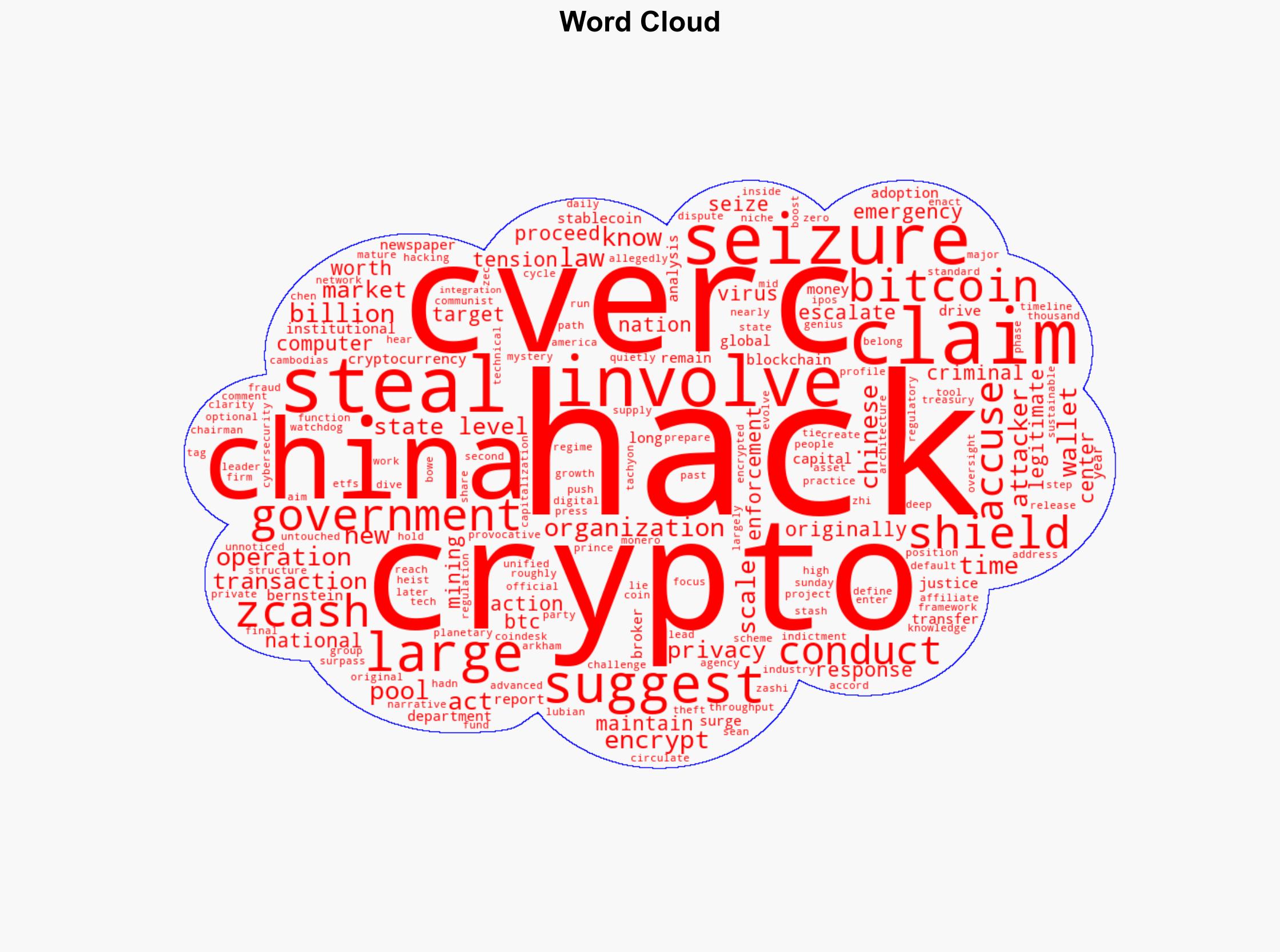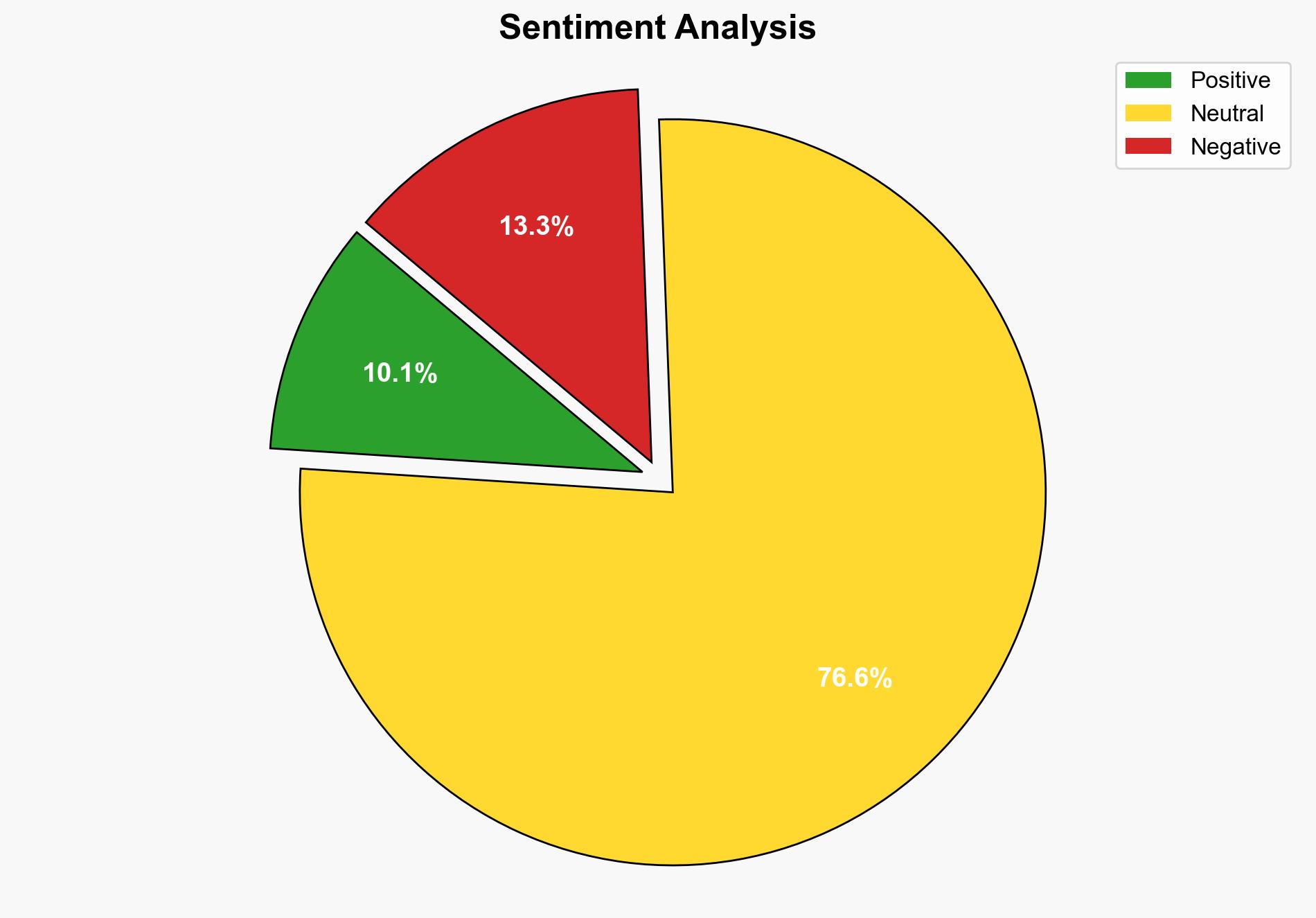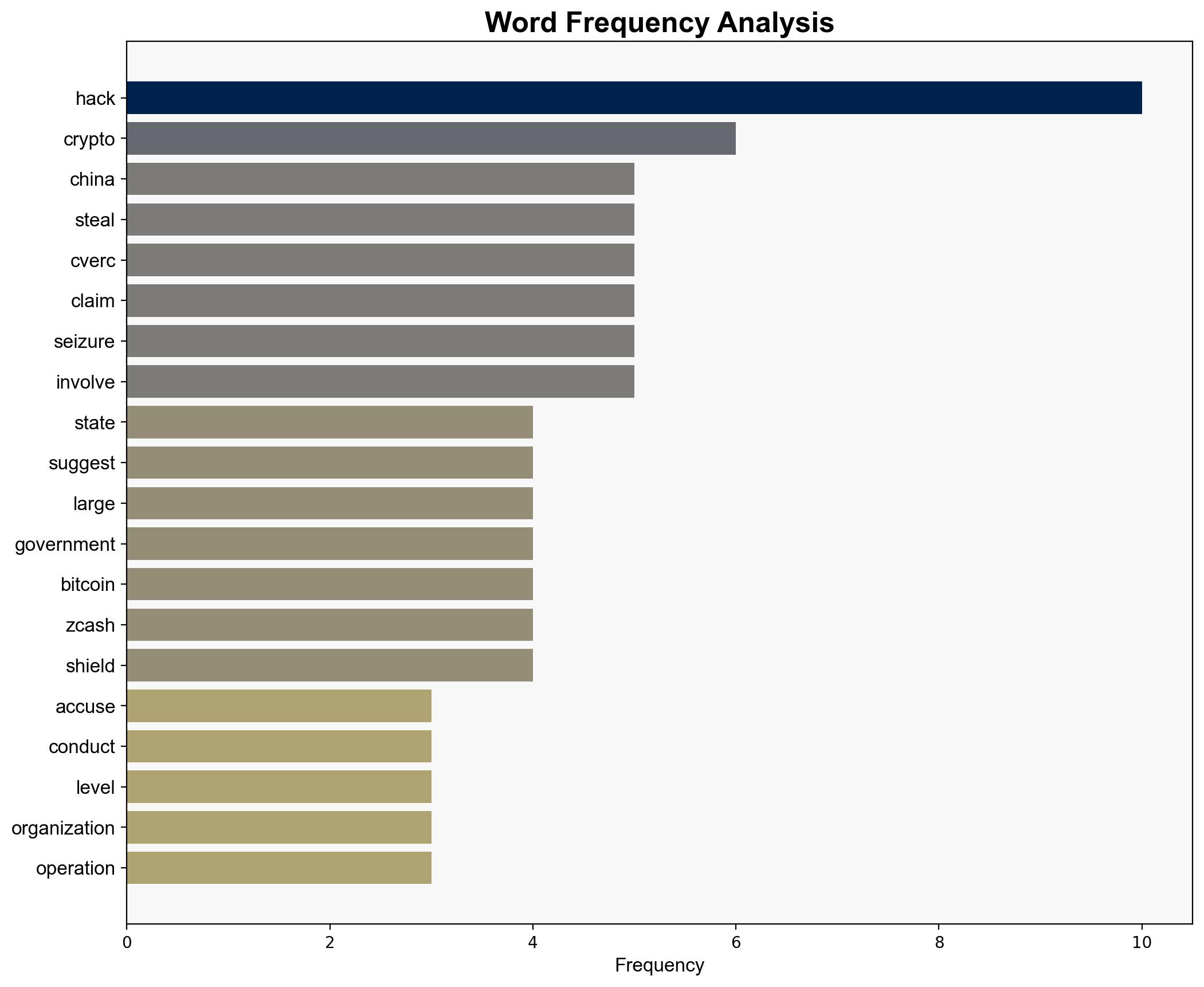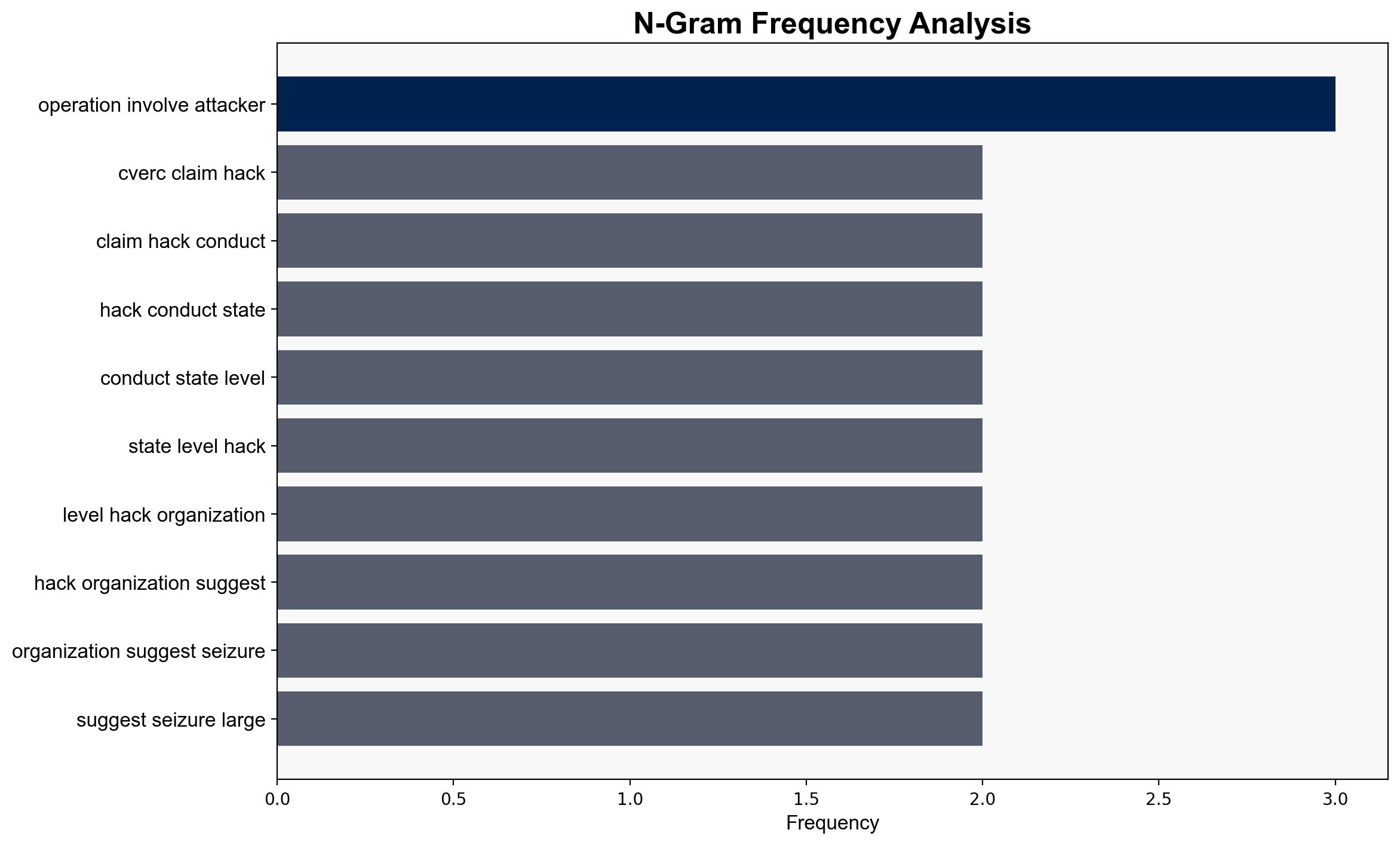China Accuses US of Stealing 127K BTC in High-Profile Crypto Hack – CoinDesk
Published on: 2025-11-11
AI-powered OSINT brief from verified open sources. Automated NLP signal extraction with human verification. See our Methodology and Why WorldWideWatchers.
Intelligence Report: China Accuses US of Stealing 127K BTC in High-Profile Crypto Hack – CoinDesk
1. BLUF (Bottom Line Up Front)
There is a moderate confidence level that the accusation by China against the US regarding the theft of 127K BTC is part of a broader geopolitical strategy rather than a straightforward criminal case. The most supported hypothesis is that China is using this accusation to escalate tensions and assert its position in the global cyber and cryptocurrency landscape. Recommended action includes diplomatic engagement to de-escalate tensions and a thorough investigation to verify claims.
2. Competing Hypotheses
Hypothesis 1: The US legitimately seized the BTC as part of a law enforcement action targeting criminal proceeds, and China’s accusation is a strategic maneuver to undermine US credibility and assert dominance in the cyber domain.
Hypothesis 2: The US did engage in unauthorized seizure of BTC, and China’s accusation is a legitimate claim of misconduct, reflecting a genuine grievance over US actions in the cyber and financial domains.
The first hypothesis is more likely given the context of ongoing geopolitical tensions and the strategic use of cyber accusations as a tool for political leverage. The second hypothesis lacks supporting evidence and relies heavily on China’s narrative without independent verification.
3. Key Assumptions and Red Flags
Assumptions include the belief that state-level hacking organizations are involved and that the US has a legitimate basis for the seizure. Red flags include the lack of independent verification of China’s claims and the potential for bias in Chinese state media reporting. Deception indicators include the timing of the accusation and the use of state-affiliated media to propagate the narrative.
4. Implications and Strategic Risks
The accusation could exacerbate existing political tensions between the US and China, potentially leading to retaliatory cyber actions or economic measures. There is a risk of escalating cyber warfare, impacting global cryptocurrency markets and international relations. The narrative could also influence public perception and trust in state actions regarding cybersecurity and digital asset management.
5. Recommendations and Outlook
- Engage in diplomatic dialogue with China to address the accusations and seek a collaborative approach to cybersecurity issues.
- Conduct an independent investigation into the BTC seizure to verify the legitimacy of the US actions.
- Enhance cybersecurity measures and international cooperation to prevent future incidents.
- Best-case scenario: Diplomatic resolution and strengthened international cybersecurity collaboration.
- Worst-case scenario: Escalation into a broader cyber conflict impacting global markets.
- Most-likely scenario: Continued tension with periodic cyber skirmishes and diplomatic negotiations.
6. Key Individuals and Entities
Chen Zhi, Chairman of Cambodia’s Prince Group, is mentioned in the context of a large-scale crypto fraud scheme. The China National Computer Virus Emergency Response Center (CVERC) is the primary entity making the accusation.
7. Thematic Tags
Cybersecurity, Geopolitics, Cryptocurrency, US-China Relations
Structured Analytic Techniques Applied
- Adversarial Threat Simulation: Model and simulate actions of cyber adversaries to anticipate vulnerabilities and improve resilience.
- Indicators Development: Detect and monitor behavioral or technical anomalies across systems for early threat detection.
- Bayesian Scenario Modeling: Quantify uncertainty and predict cyberattack pathways using probabilistic inference.
- Network Influence Mapping: Map influence relationships to assess actor impact.
Explore more:
Cybersecurity Briefs ·
Daily Summary ·
Methodology





